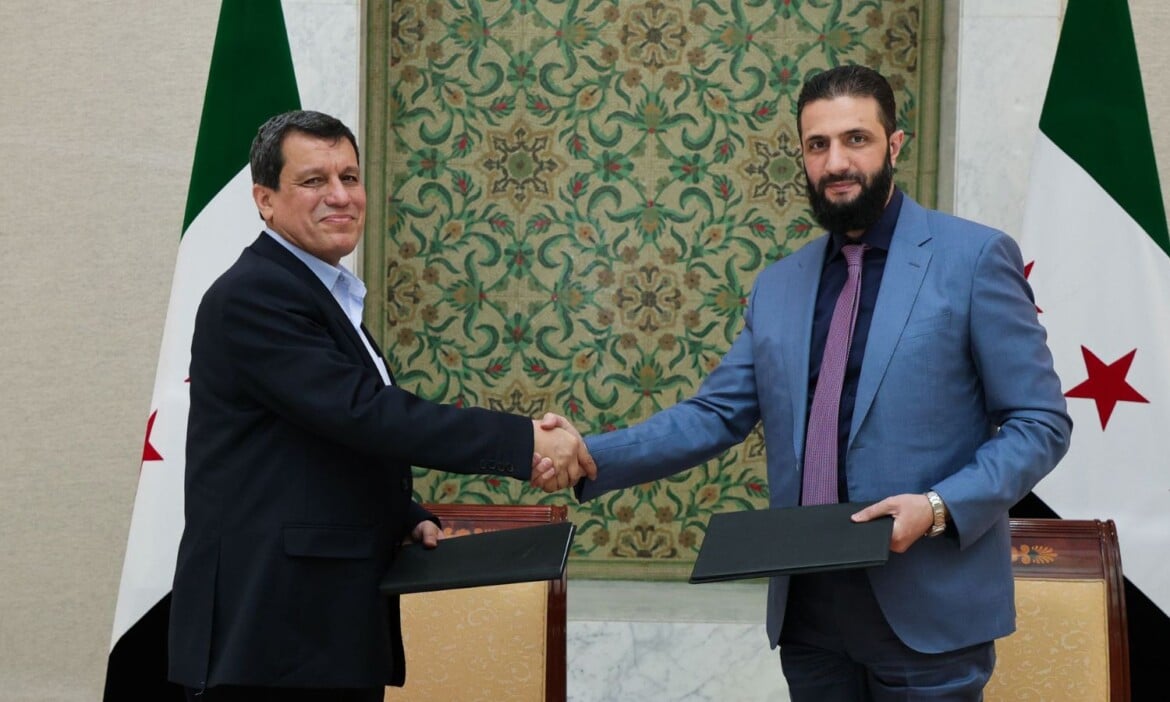Interview
Could Syria become a federalist state?
We spoke with Abdulkarim Omar, a negotiator for the Kurdish Syrian region, about the new round of talks with the transitional government in Damascus.

On Wednesday, a new round of talks took place in Damascus between the Democratic Autonomous Administration of North and East Syria (DAANES) and the transitional government led by Ahmed al-Sharaa. The meeting was also attended by a US delegation led by Special Envoy for Syria Thomas Barrack and French envoy Jean-Baptiste Faivre.
According to Abdulkarim Omar, one of the DAANES representatives involved in the negotiations, significant differences emerged, but there was still room to make progress in the dialogue.
Following the meeting, both the interim government and DAANES issued conciliatory statements. However, several sources have reported heated exchanges and deep disagreements behind closed doors.
What is the current state of relations between the interim government and DAANES?
The meeting was characterized by heated discussions and fundamental disagreements. It did not go as initially planned, and numerous unresolved issues emerged. This is natural, given the many challenges: problems that certainly cannot be resolved in a single meeting. Nevertheless, the dialogue between us continues. We are committed to implementing the March 10 agreement signed by Al Sharaa and Abdi.
According to some sources, the interim government remains firmly opposed to any discussion of decentralization in Syria. What is DAANES’s proposal on this issue?
It is true that the interim government in Damascus continues to oppose decentralization, federalism, and all similar models. From our point of view, one of the main causes of Syria's long-standing difficulties, as well as one of the reasons that led to the 2011 revolution, was precisely the rigidly centralized political system imposed by the Ba'ath Party, which fueled decades of authoritarianism and dictatorship. That is why we believe that the only viable solution for Syria is the establishment of a decentralized system, not only for our region and the Kurdish people, but for the whole of Syria and all its citizens.
The US special envoy for Syria, Tom Barrack, has stated that federalism in Syria and Iraq does not work and that DAANES has been slow to agree to negotiations. What is your position on these statements?
Unfortunately, Mr. Tom Barrack's statements are not accurate. To argue that federalism is not viable in Syria and Iraq is misleading. Iraq is currently like a federal state, with a recognized Kurdistan region. Numerous countries around the world, including the United States itself, have successfully adopted federal models. As for Syria, we are not necessarily proposing a federal system, but rather a decentralized political structure in which power is shared.
There are still unresolved issues, including the return of internally displaced persons from Afrin, Serekaniye, and Gire Spi. Have there been any concrete developments in this regard?
The issue of their return to their homes is still unresolved. This issue was one of the main topics discussed during the last meeting. We will continue to work to ensure their safe return, which remains a priority for us in the coming period. We are confident that we can identify a constructive path, in coordination with the interim government and with international guarantees, especially taking into account the concerns related to the risk of arrests or other serious difficulties that returnees may face when their return.
Finally, do you believe that the recent developments in the peace process between the Kurdistan Workers' Party (PKK) and the Turkish government are also having effects in Syria? How do you interpret these developments?
The peace process between the PKK, under the leadership of Mr. Öcalan, and the Turkish government is likely to have significant effects for our region, as well as for Syria and Iraq more broadly. Immediately after the start of this process, we reached a ceasefire agreement with Turkey, which led to the end of attacks by the Turkish army and affiliated armed groups, in particular the so-called Syrian National Army (SNA). Direct dialogue is currently underway between us and Turkey, and we firmly believe that this peace process will make a positive contribution to the stability of the region.
Originally published at https://ilmanifesto.it/il-federalismo-usa-funziona-perche-non-in-siria on 2025-07-12
